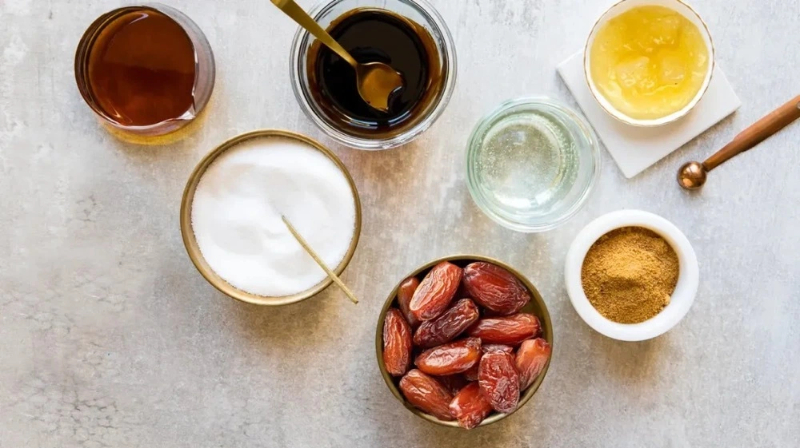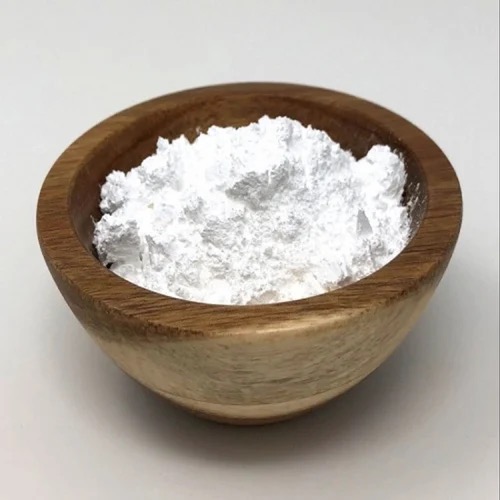Views: 222 Author: Sara Publish Time: 2025-09-02 Origin: Site








Content Menu
● The Controversy Over Sweeteners and Cancer
● Regulatory Perspectives on Sweetener Safety
● Biological Mechanisms Proposed for Carcinogenicity
● Sweeteners and Cancer Treatment
● Natural Sweeteners and Alternatives
● FAQ
>> 1. Are all sweeteners linked to cancer risk?
>> 2. What types of cancer have been associated with artificial sweeteners?
>> 3. Can sweeteners affect cancer treatment?
>> 4. What is the regulatory stance on sweeteners like aspartame?
>> 5. How can consumers reduce potential risks related to sweeteners?
Sweeteners have become a ubiquitous part of modern diets, especially with the rise of sugar-conscious consumers and the food and beverage industry's quest for healthier alternatives. Used in products ranging from soft drinks and chewing gum to yogurts and pharmaceutical tablets, sweeteners—especially artificial sweeteners—are popular for providing sweetness without calories. However, questions persist about their safety, particularly whether sweeteners increase cancer risk. This article explores the current scientific evidence, addresses controversies, and clarifies key facts surrounding sweeteners and cancer.

Sweeteners are substances used to replace sugar's sweetness in foods and drinks. They are broadly categorized as:
- Natural Sweeteners: Such as honey, maple syrup, and stevia extracts.
- Functional Polyols and Dietary Fibers: Including erythritol, xylitol, and inulin, which provide bulk and have other functional properties.
- Artificial Sweeteners: Synthetic compounds like aspartame, sucralose, and acesulfame potassium, designed to be intensely sweet with minimal calories.
This article focuses primarily on artificial sweeteners, given their widespread use in diet products and the concerns regarding their safety profiles.
The link between artificial sweeteners and cancer has been a subject of scientific scrutiny and public debate for decades. Early studies in the 1970s raised alarms about saccharin causing bladder cancer in laboratory rats, which prompted regulatory action. Since then, extensive research has been conducted to assess cancer risks associated with various sweeteners.
Recent large-scale epidemiological studies and systematic reviews offer mixed results. Notably, one 2025 cohort study of over 100,000 adults found that higher intakes of artificial sweeteners like aspartame and acesulfame potassium were associated with a modest increased risk of overall cancer and specific cancers such as breast cancer and obesity-related cancers. This raises concerns about possible modifiable risk factors in the diet.[1]
However, a comprehensive umbrella review of multiple meta-analyses found no significant association between artificial sweetener intake and cancer risk overall. Interestingly, this review suggested a potential protective effect against gynecological cancers, but the evidence did not apply uniformly to all sweeteners or cancer types.[2]
Regulatory agencies like the U.S. Food and Drug Administration (FDA), the European Food Safety Authority (EFSA), and the World Health Organization (WHO) continuously evaluate sweeteners' safety based on available evidence.
- Aspartame, one of the most scrutinized sweeteners, was classified by the International Agency for Research on Cancer (IARC) in 2023 as "possibly carcinogenic to humans" (Group 2B), based on limited evidence of cancer risk. Concurrently, the Joint FAO/WHO Expert Committee on Food Additives (JECFA) reaffirmed the acceptable daily intake (ADI) of 40 mg/kg body weight, maintaining that aspartame is safe when consumed within established limits.[3][4]
- The FDA maintains that aspartame and other approved sweeteners are safe for human consumption at recommended levels.[7]
Despite these regulatory assurances, ongoing research continues to investigate the subtleties of how sweeteners might influence cancer risk.

Scientists have explored several biochemical pathways to understand how artificial sweeteners could contribute to cancer development:
- Metabolic Byproducts: Aspartame metabolizes into compounds including formaldehyde, a recognized carcinogen, which can interfere with DNA and proteins, potentially causing mutations.[1]
- Oxidative Stress: Some studies suggest that sweetener metabolites can induce oxidative stress and lipid peroxidation, damaging cellular components.
- Cell Signaling Disruption: Sweeteners may affect pathways involved in cell growth, differentiation, and apoptosis, which are critical in cancer initiation and progression.
- Microbiome Alteration: Recent research has shown that sucralose consumption can alter gut microbiota, reducing amino acids essential for immune cell function, which might impact cancer treatment efficacy.[5][9]
However, these mechanisms remain under investigation with varying degrees of evidence supporting them.
New findings highlight the complex role sweeteners may play beyond cancer risk, particularly in cancer therapy:
- Sucralose intake was linked to diminished responses to immunotherapy in melanoma and lung cancer patients. The altered gut microbiome reduces arginine levels, essential for T cell effectiveness, thereby undermining immune responses during cancer treatment. Supplementing with arginine showed promise in reversing this effect in experimental models.[9][5]
This emerging evidence suggests dietary sweeteners might influence not only cancer risk but also treatment outcomes, necessitating personalized nutrition considerations in oncology.
While artificial sweeteners dominate the discussion around health risks, certain natural-based sweeteners, such as stevia and functional polyols (e.g., erythritol, xylitol), are considered safer alternatives with fewer associated risks. Many of these also provide added benefits like dietary fiber and prebiotic effects. However, long-term safety data remain limited, and moderation is generally advised.
In conclusion, current evidence on sweeteners and cancer is complex and evolving. While some data hint at increased cancer risk associated with particular sweeteners, especially at high intakes, overall findings are inconclusive. Regulatory agencies continue to monitor and evaluate these substances to ensure safety within established consumption limits. Moreover, new insights into the impact of sweeteners on cancer treatment outcomes highlight the importance of personalized dietary choices. Consumers should stay informed, prioritize moderation, and consult healthcare professionals regarding sweetener use tailored to their health status.

No, not all sweeteners carry the same risk. Natural sweeteners and many polyols are considered safe, while some artificial sweeteners like aspartame have limited evidence linking them to cancer under high consumption but are approved as safe within regulated limits.[2][1]
Studies have suggested possible associations with breast cancer, obesity-related cancers, non-Hodgkin lymphoma, and multiple myeloma, especially linked to aspartame and acesulfame-K, but evidence is not definitive.[1]
Yes, research indicates that artificial sweeteners such as sucralose may reduce the effectiveness of immunotherapy by altering the gut microbiome and immune cell functions.[5][9]
Aspartame is classified as possibly carcinogenic by IARC with limited evidence but is considered safe for consumption within the acceptable daily intake by agencies like FDA, EFSA, and WHO.[4][3][7]
Consumers should consume sweeteners in moderation, prefer natural sweeteners or polyols when possible, maintain a balanced diet, and stay updated with scientific and regulatory findings.[2][1]
[1](https://pmc.ncbi.nlm.nih.gov/articles/PMC12286081/)
[2](https://www.frontiersin.org/journals/medicine/articles/10.3389/fmed.2025.1647178/full)
[3](https://www.wcrf.org/preventing-cancer/topics/aspartame-and-cancer/)
[4](https://www.who.int/news/item/14-07-2023-aspartame-hazard-and-risk-assessment-results-released)
[5](https://www.reuters.com/business/healthcare-pharmaceuticals/health-rounds-artificial-sweetener-consumption-linked-less-effective-cancer-2025-08-01/)
[6](https://pubmed.ncbi.nlm.nih.gov/39780215/)
[7](https://www.fda.gov/food/food-additives-petitions/aspartame-and-other-sweeteners-food)
[8](https://www.mdanderson.org/cancerwise/diet-soda-and-cancer-risk--what-you-should-know.h00-159775656.html)
[9](https://www.news-medical.net/news/20250731/Artificial-sweetener-may-undermine-effectiveness-of-cancer-treatment.aspx)
